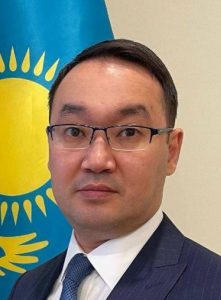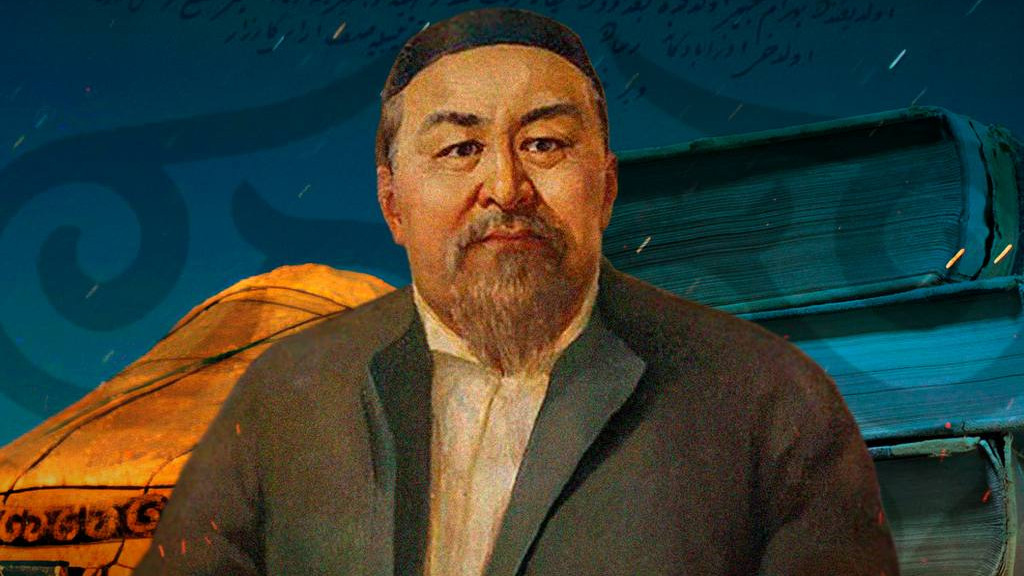
By Yerzhan Ashikbayev
Throughout history, the world’s most influential philosophers have reached beyond their national boundaries, engaging with ideas of universal significance and shaping societies in profound ways. These thinkers sought to improve the lives of ordinary people by exploring ways to make governance more efficient, social contracts more just, and to find happiness for individuals in their liberties. Today, our modern world stands on the foundation laid by these visionaries, who developed groundbreaking theories on government, democracy, statecraft, and the concepts of a just and prosperous society.
Many philosophers have become synonymous with their nations, embodying their national spirit and serving as symbols of ethics and wisdom. Just as Confucius influenced Eastern thought, and Socrates, Plato, Aristotle, and other notable Greek philosophers shaped the Western order, Central Asia has its own esteemed thinkers whose contributions have been essential to regional and nation-building processes.
In Central Asian intellectual tradition, we take pride in figures like Al-Farabi, who was born in what is now Kazakhstan c. 870. In his seminal work “Opinions of the People of the Virtuous City,” Al-Farabi envisioned an ideal regime led by a philosopher – prophet, a ruler possessing both intellectual excellence and divine insight. Al-Farabi along with other great thinkers of Islamic Central Asia addressed an elite audience, producing texts in the “mirrors for princes” genre, giving advice and guidance for rulers on governance and the common good.
A thousand years later, Abai Kunanbaev–a philosopher and poet whose legacy has become intertwined with the spirit of modern Kazakh statehood–did not advise rulers or envision an ideal prince, but wrote for ordinary people, seeking to awaken a national voice among his fellow Kazakhs. A polymath of his era, Abai, born 180 years ago, synthesized the rich traditions of Kazakh oral literature, Islamic-nomadic philosophy, and Russian and Western thought, carving out a unique space in the history of Kazakh nation-building.
Abai’s upbringing bore the mark of multiple influences. Educated in both the early Jadid madrasa (taught by the method of the prominentKazan scholar Shehabeddin Mercani) as well as a Russian church school, he was among the earliest Kazakh authors to produce written works in the last years of nomadic societybound to oral transmission.
This period in Kazakh history between the 19th and 20th centuries served as a bridge between cultures and eras, allowing traditional wisdom to be adapted for a society undergoing modernization, –an important context for his reflections.
Abai’s intellectual curiosity extended far beyond local sources. The American traveler G. Kennan, in his book “Siberia and the Exile System,” published in 1891, described the impressive small library in Semei, a city in East Kazakhstan, where Abai lived, noting the presence of thousands of volumes from Western authors–Spencer, Darwin, Mill, Dickens, Shakespeare, and more. Abai himself reflected on the transformative power of these readings: “I have read many books by European scholars since my 30s. Near the age of 40, the world I know has turned upside down. My East turned into the West, my West became the East”.
Abai’s personal experiences – marked by grief, loss, false accusations, and his work as both a government official and the son of a prominent local ruler–deepened his empathy for the common person. He witnessed firsthand the subtleties of daily life, legal disputes over land and property, the challenges of power and belonging in a changing society, and the corrosive effects of corruption brought about by the nascent capitalist order under Tsarist rule. Logic and argument, principles he held dear, became the tools with which he navigated and addressed these complexities.
During this time of dynamic economic and social transformation–driven by the dramatic modernization of the Russian Empire itself – Kazakh society often found itself unprepared to face new realities. New institutions needed to be established upon a foundation of shared values, but the crucial question remained: how could a stronger moral and ethical framework be laid across the nation? The morality of the nomadic communal economy and the legal frameworks of long-dead khans – such as Kassym Khan’s “Bright Path,” Yesim Khan’s “Ancient Truths,” and Tauke Khan’s “Seven Charters”–had guided past eras but were now increasingly out of step with a changing world of borders, capital, and ownership.
Abai saw his mission as one of philosophical education and moral uplift for his people. In this regard, he is often compared to Leo Tolstoy; both lamented the erosion of traditional ways of life – whether nomadic or peasant–and worried that their people were ill-equipped for the rapid pace of modern change. Like Tolstoy, Abai embodies a stoic and minimalist outlook, dismissing the pursuit of pleasure, wealth, and fame, and instead focusing on continuous self-improvement and virtue.
It was within this context that Abai composed his principal philosophical work, “Words of Edification” (or “Kara Sozder”) composed of 45 “Words”/parables. Addressing his fellow Kazakhs as intimately as he could, he wrote in a tone that could be both passionate and stern, guiding his readers to live with integrity, to develop their minds, to value honor, and to resist succumbing to base desires.
Like Schopenhauer, Abai is often a pessimist. “The world is unstable, the strength of humans unreliable, and life itself is deceptive,” he writes in his 20th Word. Human beings are sinful, and so is the crowd. “Who poisoned Socrates, burned Joan of Arc, crucified Christ? The crowd. Therefore, the crowd has no mind. Be able to direct it along the path of truth.” “The most beautiful thoughts become dull as they pass through human lips.” “A bad friend is like a shadow. When the sun shines, you cannot escape them; but when clouds gather overhead, you cannot find them”. These, found in his 37th Word, stand as sharp contemporary proverbs.
Abai does not subscribe to the idea of national exceptionalism; instead, he believes in a spirit of multiculturalism. In his second Word, he offers a frank self-assessment of his people, urging them to look to their neighbors – the Uzbeks, Nogais, Russians – to learn skills, embrace trade, pursue knowledge, cultivate genuine faith, and practice endurance and strength of character. He encourages travel and the sending of children to distant schools, emphasizing the importance of learning and self-improvement.
“I do not know how to feel about my own people – do I love them or do I dislike them?” Abai asks himself in a moment of honest introspection. Compare this to Schopenhauer’s quote: “Every miserable fool who has nothing at all of which he can be proud, adopts as a last resource pride in the nation to which he belongs; he is ready and happy to defend all its faults and follies tooth and nail, thus reimbursing himself for his own inferiority.”
Abai questions Kazakh folk wisdom. He scrutinizes certain proverbs, cautioning that one must be wary of sayings born out of careless thinking. Is it really wise to believe, “Whoever is rich is right,” or that “A wealthy man’s face shines while that of the poor remains in shadow”?
Abai’s words invite careful reading. Writtenwith a kind of internal logic and often ending with a striking or unexpected thought his sayings leave the reader reflecting deeply. They are exercises in reasoned argument, echoing the traditions of Kazakh folk oratory, where eloquent bards, akyns, engaged in contests of wit and persuasion.
Yet, what is the ultimate value guiding Abaias a philosopher–heart or reason? In his 17th Word, he declares that the heart should triumph. Still, he is sometimes conflictedwhich ought to prevail. In his 39th Word, he observes that even as we become more educated, we sometimes lose the virtues of our ancestors, who above all cherished unity and honor. “The essence of a person is composed of love, justice, and spiritual depth”, he decides in his final 45th Word.
Abai’s works reflect his deep commitment to uplifting ordinary people. As we commemorate the 180th anniversary of his birth, we honor Abai not only as a philosopher but as a continuous source of inspiration and guidance for generations of Kazakhs, embodying the enduring spirit of the nation.
Abay’s philosophical reasoning represents a synthesis of Eastern, Western, and Middle Eastern thought, reflecting deep social, economic, and political insight within Kazakh society. It highlights how the Kazakh context uniquely absorbs and localizes diverse cultural and intellectual traditions, aligning them with the values, needs, and aspirations of its people. The author is Ambassador of Kazakhstan to the United States. Courtesy: Astana Times )


